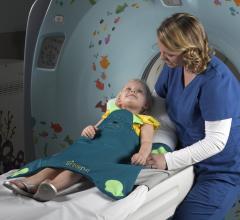If you enjoy this content, please share it with a colleague
RELATED CONTENT
The American Society for Radiation Oncology (ASTRO) called on legislators across the country to find a permanent fix to the sustainable growth rate (SGR) formula to preserve access and improve the quality of care for Medicare’s millions of beneficiaries. The association commended Congressional leadership for introduction of the “Medicare Access and CHIP Reauthorization Act” (H.R. 2) and also met with Congressional leaders in Washington, D.C., as part of its 12th Annual Advocacy Day.
The American Society for Radiation Oncology (ASTRO) leadership participated in the launch of the new Health Care Payment Learning and Action Network (HCPLAN) from the U.S. Department of Health and Human Services (HHS) at an event featuring President Obama and HHS Secretary Sylvia M. Burwell. HCPLAN is designed to inform and enable system-wide improvement of Medicare’s payment structure.
Prostate cancer patients with detectable prostate specific antigen (PSA) following radical prostatectomy should receive earlier, more aggressive radiation therapy treatment, according to a new study.
The International Lymphoma Radiation Oncology Group (ILROG) has issued a guideline outlining the use of 3-D computed tomography (CT)-based radiation therapy planning and volumetric image guidance for treatment of pediatric Hodgkin lymphoma. The goal of the new guideline is to reduce the radiation dose to normal tissue, thus decreasing the risk of late side effects.
Recently, the Centers for Medicare and Medicaid Services (CMS) issued a final national coverage determination, effective immediately, that provides for Medicare coverage of screening for lung cancer with low dose computed tomography (LDCT). This screening gives at-risk seniors unprecedented access to care.
Cancer patients with limited brain metastases (one to four tumors) 50 years old and younger should receive stereotactic radiosurgery (SRS) without whole brain radiation therapy (WBRT), according to a study in the March 15, 2015 issue of the International Journal of Radiation Oncology • Biology • Physics (Red Journal).
Three American Society for Radiation Oncology (ASTRO) staff members have been promoted to new positions: Emily Wilson has been named executive vice president; Dave Adler promoted to vice president of advocacy; and Anne Hubbard promoted to director of health policy, as announced by ASTRO’s board of directors and effective immediately.
A 2013 survey of radiation oncologists indicates that they would like more formal recommendations and guidance in order to improve the peer review process, according to a study published in the January-February 2015 issue of Practical Radiation Oncology (PRO), the clinical practice journal of the American Society for Radiation Oncology (ASTRO).
A new study on the use of hypofractionated whole-breast irradiation (HF-WBI) for early-stage breast cancer patients found HF-WBI increased 17.4 percent from 2004 to 2011. Patients are also more likely to receive HF-WBI compared to conventionally fractionated whole-breast irradiation (CF-WBI) when they are treated at an academic center or live ?50 miles away from a cancer center. The study was published in the Dec. 1, 2014, issue of the International Journal of Radiation Oncology • Biology • Physics (Red Journal), the official scientific journal of the American Society for Radiation Oncology (ASTRO).
Analysis of data from an institutional patient registry on stereotactic body radiotherapy (SBRT) indicates excellent long-term local control on 79 percent of tumors for medically inoperable, early stage lung cancer patients treated with SBRT from 2003 to 2012. The research was presented at the 2014 Chicago Multidisciplinary Symposium in Thoracic Oncology.


 March 26, 2015
March 26, 2015 


